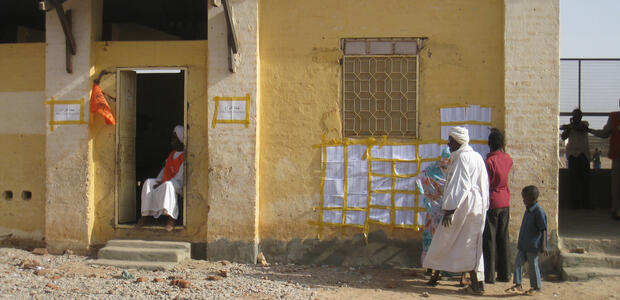Rachel M. Gisselquist speaks at BTI Symposium on Countering Democratic Erosion
Rachel M. Gisselquist speaks at the BTI Symposium on Countering Democratic Erosion: Resilience, Depolarization and Inclusion organized by the Bertelsmann Foundation. Her participation in the event will include dissemination of key findings from UNU-WIDER research projects on how inequality affects prospects for democracy and governance, the role of foreign aid in democracy promotion, and the effectiveness of development cooperation in international statebuilding efforts.
Rachel M. Gisselquist speaks at 9:00 UTC+2 23 September in a session entitled 'Two takes on fairness and inclusion'.
About the symposium
For more than a decade, the Transformation Index BTI has identified a continuous, gradual decline in the quality of political and economic transformation as well as governance worldwide. The guiding principles of democracy and the market economy have been subjected to intense pressure and are being challenged by illiberalism and authoritarian rule. BTI has been analyzing and communicating not only how democratic erosion manifests itself but has also identified some of the multifaceted underlying drivers. The BTI and other major indices, as well as academic research are important in the diagnosis of the current state of democracy and help shape public perception about the urgency of the problem. The analysis and debate on strategies to reverse democratic decline have been less extensive and only started to gain momentum recently. Facing again disconcerting preliminary results in the BTI 2024, we want to bring the BTI to the heart of this solution-oriented debate, shifting the focus from diagnosis to action.
The BTI Symposium intends to focus on how to regain democratic ground after many years of regression. BTI data will provide background information, but we aim to go beyond an interpretation of BTI results and invite our trusted inner circle, the BTI Board, as well as selected experts to the exploration of fresh and innovative input on how to reverse the tide. On September 21 and 22, we will meet in Berlin for a 1.5-day-conversation with a group of around 35 experts. The moderated dialogue is intended to lead to a more systematic understanding of how to comprehensively address the challenges democratic transformation faces, structure the positive practices that already exist, and focus on concrete solutions and innovations.
The conversation will kick off with reflections on the resilience of democracies and the potential for democratization, including questions on how to fortify democratic institutions in and after phases of backsliding and how to identify the factors and constellations determining the success of civil society activism in stemming against authoritarian-leaning rule or in closed societies. Our conversation will address the issues of marginalization, socioeconomic inequalities, and clientelism as polarizing factors detrimental to democratic development. Considerable time will be devoted to discussing strategies to enhance inclusive governance as one of the key factors for democratic resilience.
At the end of the symposium, we will summarize good practices and promising strategies identified during our conversations. Contributing to a more positive and empowering narrative, conference results will also enrich the communication of the BTI 2024 publication.
 Join the network
Join the network
